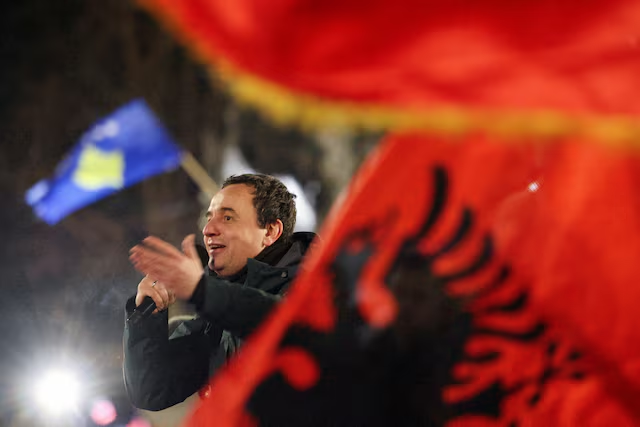Reuters has reported that the United States has indefinitely suspended the planned Strategic Dialogue with Kosovo due to concerns over the actions of the caretaker government led by Albin Kurti.
The suspension affects talks on strengthening economic and diplomatic ties. According to a statement from the US Embassy in Pristina, some recent moves by the temporary government have fueled “tensions and instability.”
The embassy did not specify which actions triggered the decision, but Washington has previously accused Prime Minister Albin Kurti of worsening tensions in northern Kosovo with its Serb majority and of delaying the creation of new institutions following the February parliamentary elections, Reuters reported.
“The United States has indefinitely suspended its planned Strategic Dialogue with Kosovo due to concerns about the actions of the caretaker government that have increased tensions and instability,” the US Embassy said.
It added that Kurti’s recent actions and statements have challenged years of progress.
In response, the Kosovo government stated it remains committed to peace and regional stability.
“We also welcome criticism. Whenever it is concrete, we make every effort to improve and correct our actions,” the government said.
The US has long been Kosovo’s strongest political and financial supporter, making this suspension a serious low point in bilateral relations.
The European Union, which Kosovo hopes to join, had already imposed sanctions on the country in 2023 over ethnic tensions in the Serb-majority north. The EU continues to pressure Kosovo to establish a Serb municipalities association to allow greater self-governance for local Serbs. Kurti has rejected the proposal, arguing it could pave the way for partition, instead seeking to limit Serbian autonomy in the north.
Kurti’s Vetëvendosje party won the February 9 elections, but failed to secure an outright majority and has so far been unable to form a new coalition government.
Kosovo declared independence from Serbia in 2008, nearly a decade after NATO airstrikes expelled Serbian forces from the territory.
Still, 50,000 Serbs in northern Kosovo refuse to recognize Pristina’s institutions, seeing Belgrade as their capital and relying on Serbia for salaries, pensions, and healthcare.







